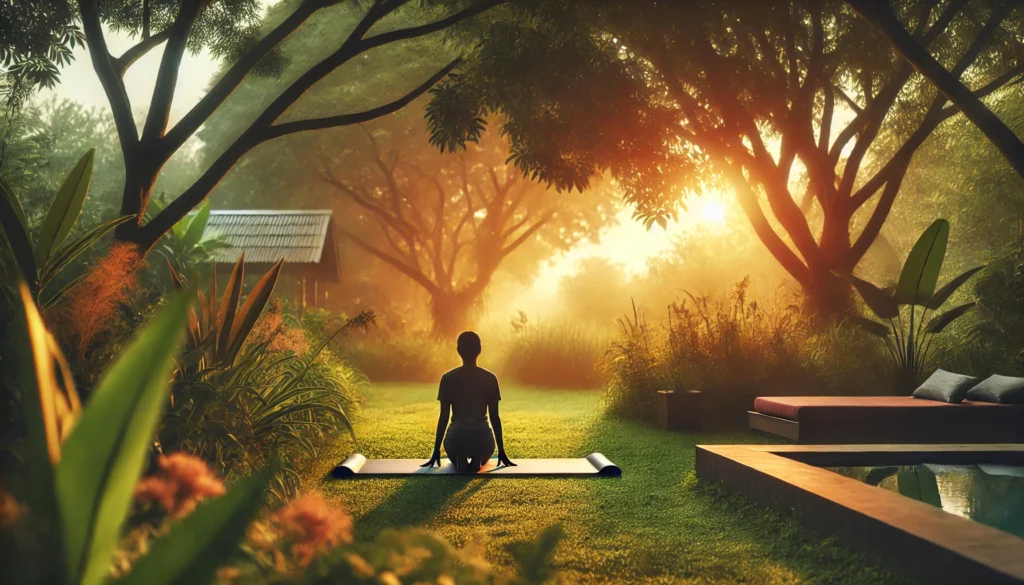Sleep is a vital part of our lives. It’s a time when our bodies rest, rejuvenate, and prepare for the next day.
But what if we could optimize this process? What if we could get the benefits of a full night’s sleep in less time?
This is the concept of sleep optimization. It’s a growing field of interest for health and wellness coaches, science journalists, and biohackers alike.
In this article, we’ll delve into the science of sleep. We’ll debunk myths and explore the potential of compressing sleep.
We’ll also provide practical strategies for creating an ideal sleep environment. We’ll discuss the role of light, diet, and pre-sleep rituals in sleep quality.
We’ll explore the use of technology and supplements in sleep enhancement. And we’ll look at the future of sleep optimization, including emerging research and innovations.
Our goal is to provide a comprehensive guide to sleep optimization. Whether you’re a coach, a journalist, or a biohacker, we hope this article will empower you with the knowledge and tools to improve your sleep and overall health.
You May Also Like: Sleep Hygiene: Key Practices for Health
The Science of Sleep: Understanding the Basics
Sleep is complex and involves several stages, each with unique functions. The stages include light, deep, and REM sleep. Each stage plays a role in our health and well-being.
During light sleep, our bodies process information and maintain physiological processes. Deep sleep is where most physical recovery and growth occur. REM sleep is linked to memory consolidation and mood regulation.
Understanding these stages is key to optimizing sleep. By recognizing these phases, we can make informed choices about how to improve sleep quality.
Circadian Rhythms and Sleep Cycles
Circadian rhythms are natural processes that dictate our sleep-wake cycles. They are influenced by external factors such as light and darkness. A regular circadian rhythm ensures better sleep quality and overall health.
Misaligned circadian rhythms can lead to poor sleep. This misalignment may result from irregular sleep schedules or exposure to artificial light. Maintaining a consistent sleep-wake cycle is crucial for circadian rhythm harmony.
Optimizing circadian rhythms means syncing daily activities with natural light-dark patterns. This can involve getting sunlight exposure during the day and minimizing artificial light at night.
Debunking Sleep Compression Myths
Many desire to reduce sleep time without losing restorative benefits. Myths about achieving “how to sleep 8 hours in 4 hours” persist. However, compressing sleep naturally isn’t feasible without risks.
The belief that efficient sleep requires less time can lead to sleep deprivation. Shortened sleep may impact mood, cognitive function, and physical health. Sufficient rest is essential for maintaining these functions.
Prioritizing quality sleep over quantity reduction is crucial. Rather than seeking shortcuts, focus on optimizing the sleep you do get through effective habits and environments.
Creating the Ideal Sleep Environment
A conducive sleep environment significantly impacts sleep quality. The bedroom should promote relaxation and restfulness. This involves considering factors such as light, temperature, and sound.
A dark, cool, and quiet room sets the stage for better sleep. Darkness signals the body to produce melatonin, a hormone that facilitates sleep. Ensuring minimal noise further prevents disruptions throughout the night.
Invest in blackout curtains or a sleep mask to eliminate unwanted light. Use earplugs or white noise machines to mask sounds. Together, these create a haven for uninterrupted sleep.
The Role of Light in Sleep Optimization
Light is a powerful cue influencing our sleep patterns. Exposure to light, especially blue light, affects melatonin production. This is why reducing blue light exposure before bed is essential.
Blue light from electronics can trick the brain into thinking it’s daytime. Limiting screen time in the evening helps melatonin levels rise naturally. Consider using blue light filters if device use is necessary before bed.
To regulate sleep cycles, ensure exposure to natural light during the day. Bright light in the morning resets the circadian rhythm, reinforcing the body’s internal clock. This helps promote regular sleep patterns.
Bedroom Design for Better Sleep
The design and arrangement of your bedroom can impact sleep. Choosing calming colors and comfortable bedding is key. These elements help foster a soothing and inviting atmosphere for rest.
Soft hues such as blues and greens are known for their relaxing properties. Comfortable bedding and supportive pillows enhance comfort and help achieve deep sleep. This combination eases the body into a restful state.
Incorporate elements like a tidy layout and decluttered space to reduce stress. This helps create a tranquil environment where the mind associates the bedroom with sleep, not chaos. This psychological trick can improve sleep quality over time.

Pre-Sleep Rituals and Habits
Establishing a pre-sleep routine prepares your body and mind for rest. Consistency in these rituals cues the brain it’s time to wind down. This transition from wakefulness to sleep becomes smoother and more effective.
Start by setting a fixed bedtime and wake-up time. Sticking to these times, even on weekends, regulates your body clock. This rhythm enhances your ability to fall asleep and wake up naturally.
Incorporate calming activities into your pre-sleep ritual. Reading a book, taking a warm bath, or practicing meditation can signal relaxation. Avoid stimulating activities which can hinder relaxation, leading to delayed sleep onset.
Diet and Nutrition’s Impact on Sleep
What we consume throughout the day affects our sleep quality. Foods rich in tryptophan, magnesium, and melatonin aid sleep. These nutrients can help the body naturally prepare for rest.
Avoid large meals and caffeine close to bedtime. Digestion can disrupt sleep, while caffeine stimulates the nervous system. Both can lead to trouble falling asleep or staying asleep.
Alcohol might seem to induce sleep, but it negatively affects sleep cycles. It can lead to disrupted sleep and early waking. Opt instead for foods like almonds or chamomile tea, which promote sleep readiness.
Relaxation Techniques for Better Sleep
Techniques that foster relaxation can greatly improve sleep quality. Practices like deep breathing and guided meditation reduce stress and calm the mind. They help ease the body into a restful state conducive to sleep.
Progressive muscle relaxation is particularly effective. By tensing and then relaxing different muscle groups, tension is released. This technique reduces bodily stress that might otherwise interfere with sleep.
Incorporating mindfulness or yoga into your evening routine may also enhance relaxation. These practices focus on awareness and breath control. By grounding the mind in the present, they can alleviate stress and encourage more restorative sleep.
Sleep Schedules and Consistency
A consistent sleep schedule is foundational for optimizing rest. Synchronizing your sleep times daily aligns your circadian rhythm. This alignment supports better sleep quality and daytime alertness.
Following the same schedule, even on weekends, is vital. Irregular schedules confuse your internal clock, disrupting sleep. Consistency helps reinforce natural sleep-wake cycles.
Having a bedtime ritual reinforces this schedule. Activities that signal upcoming sleep can aid in this transition. This strengthens your body’s association with bedtime, making falling asleep easier.
The Importance of Regularity in Sleep Patterns
Regular sleep patterns are crucial for maximizing rest benefits. They help synchronize the body’s internal clock. This synchronization results in more consistent and restorative sleep.
Irregular patterns can lead to sleep deprivation effects. Poor concentration, mood disturbances, and weakened immunity can result. Ensuring regularity helps mitigate these adverse outcomes.
To maintain regular patterns, avoid abrupt changes in your schedule. Gradual adjustments are less jarring to your system. Such careful management preserves the rhythm crucial for optimal sleep.
Napping: A Friend or Foe to Sleep Optimization?
Napping can be a double-edged sword in sleep optimization. Short naps can boost alertness and mood without disrupting night sleep. However, long or late naps can interfere with nighttime rest.
Timing and duration are key in napping. A 10-20 minute nap early afternoon proves beneficial without affecting nighttime sleep. Longer naps are more likely to induce sleep inertia and disrupt evening routines.
Consider if napping fits your lifestyle and sleep needs. Some find naps essential; others find them disruptive. If nighttime sleep suffers, it might be worth re-evaluating your napping habits.
Leveraging Technology for Sleep Optimization
In today’s digital age, technology offers numerous tools for enhancing sleep. These innovations can help track, analyze, and improve sleep quality. Understanding how technology can aid sleep is vital for sleep optimization.
One of the leading ways technology assists is through sleep tracking. Devices provide insights into sleep patterns and stages, offering valuable data. They help identify issues and suggest strategies for improvement.
Beyond tracking, technology offers solutions like noise machines and smart lighting. These tools create an ideal sleep environment, fostering deeper rest. Such advancements highlight technology’s role in achieving optimal sleep.
Sleep Trackers and Wearable Tech
Sleep trackers and wearables are at the forefront of sleep technology. They measure sleep duration, stages, and even disturbances. This data enables a deeper understanding of personal sleep habits.
These devices often include features like heart rate monitoring. By analyzing this data, users can gain insights into their sleep health. Such insights are invaluable for identifying areas needing improvement.
Moreover, wearables offer convenience. Devices like watches and fitness bands seamlessly integrate into daily life. This ease of use encourages consistent monitoring, crucial for effective sleep optimization.
Apps and Tools to Enhance Sleep Quality
Mobile apps are revolutionizing how we address sleep quality. They offer solutions from guided meditations to white noise generators. Such features assist in creating a tranquil environment conducive to rest.
Many apps provide personalized sleep plans based on user data. They offer daily tips and track progress, motivating users to maintain good habits. This personalization makes them a valuable tool for anyone looking to improve sleep.
In addition to aiding routines, apps can teach relaxation techniques. Techniques like deep breathing or visualization enhance pre-sleep rituals. Incorporating such apps into nightly routines can significantly elevate sleep quality.

Supplements and Nootropics for Sleep Enhancement
Sleep enhancement supplements are gaining traction in wellness circles. They promise better rest through natural or synthetic means. When used correctly, they can be a valuable tool for optimizing sleep.
Nootropics, often known for cognitive benefits, are also finding a place in sleep optimization. They work by supporting neurotransmitters that promote calm and relaxation. Exploring various nootropics can help find the best fit for individual sleep needs.
However, supplements should complement, not replace, healthy sleep habits. It’s crucial to research thoroughly and consult healthcare professionals before starting. This ensures the choice is both safe and effective for enhancing sleep quality.
Melatonin, Magnesium, and Other Sleep Aids
Melatonin is a widely known supplement for sleep support. It mimics the hormone our body naturally produces to regulate sleep cycles. Taking melatonin can be especially helpful for those with disrupted sleep patterns.
Magnesium plays a different role by relaxing muscles and calming the mind. This mineral is essential for nerve functions, and deficiency can lead to insomnia. Including magnesium-rich foods or supplements can enhance restful sleep.
Beyond these, other supplements like valerian root and L-theanine offer benefits. They work through various mechanisms to promote relaxation and ease stress. However, personalized experimentation is key to finding the most effective sleep aids.
The Biohacker’s Approach to Sleep Optimization
Biohackers are known for pushing the boundaries of personal health. In sleep optimization, they leverage cutting-edge techniques and supplements. Their goal is to achieve superior mental and physical health through strategic interventions.
Experimentation is a hallmark of the biohacker’s approach. They often test novel supplements and unconventional sleep schedules. By tracking results meticulously, they tailor sleep strategies to their specific needs.
Biohackers also prioritize data-driven decisions. They use devices and apps to gather insights on sleep quality and efficiency. This data informs their choices, allowing continual refinement of their sleep optimization strategies.
Managing Stress and Anxiety for Better Sleep
Stress and anxiety are common culprits behind sleepless nights. They can disrupt the mind’s ability to relax and unwind. Managing them effectively is crucial for optimizing sleep quality.
Identifying stress triggers is the first step toward better sleep. By understanding these, individuals can implement strategies to counteract their effects. This proactive approach is central to minimizing sleep disturbances caused by stress.
Incorporating calming practices into daily routines can significantly improve sleep. Simple changes, like creating a calming evening ritual, can make a substantial difference. Such habits pave the way for a more restful night.
Cognitive-Behavioral Techniques and Mindfulness
Cognitive-behavioral therapy (CBT) is an effective tool for addressing insomnia. It helps in reshaping negative thoughts about sleep. By altering these perceptions, CBT encourages healthier sleep patterns.
Mindfulness complements CBT by fostering present-moment awareness. It reduces stress through meditation and focused breathing, enhancing mental clarity. This calm state helps the mind transition more smoothly into sleep.
Both CBT and mindfulness cultivate a positive outlook toward sleep. They empower individuals to break the cycle of anxiety and insomnia. Together, they offer a holistic approach to improving sleep health.
The Role of Exercise in Sleep Optimization
Regular physical activity is instrumental in promoting better sleep. It elevates mood and reduces stress levels, two key factors affecting sleep. Exercise creates a natural fatigue, making it easier to fall asleep.
The timing of exercise plays a crucial role. Activities earlier in the day are ideal, allowing the body to cool down by night. Evening workouts can be stimulating, potentially interfering with winding down.
Incorporating routine exercise can lead to improvements in sleep quality. It’s important to choose activities that are enjoyable and sustainable. This ensures consistency, making exercise a reliable ally in sleep optimization efforts.
The Future of Sleep Optimization
The landscape of sleep optimization is rapidly evolving with technological advances. These innovations are spearheading new methods to enhance sleep quality. The future promises even more precise interventions in personal sleep habits.
Emerging technologies aim to decode individual sleep patterns with unprecedented accuracy. This data-driven approach allows for tailored sleep solutions. Personalized sleep strategies promise significant improvements in sleep efficiency and health.
Furthermore, scientific research continues to unravel the complexities of sleep. Ongoing studies on brain function and circadian rhythms pave the way for new insights. These developments hold the potential to revolutionize how we approach sleep optimization.
Innovations and Research on the Horizon
Recent years have seen exciting breakthroughs in sleep technology. From smart mattresses to advanced sleep applications, innovation abounds. These tools offer real-time feedback and dynamic adjustments to enhance rest.
Research on sleep genetics is also gaining momentum. Scientists are exploring how genes influence sleep patterns and needs. This field holds promise for customized sleep interventions tailored to genetic profiles.
Artificial intelligence (AI) plays a pivotal role in sleep optimization. AI systems can analyze vast amounts of sleep data, identifying trends and solutions. The marriage of AI and sleep science is poised to transform the future of rest.
Personal Experimentation and Sleep Tracking
Personal experimentation is crucial for effective sleep optimization. Individuals are encouraged to test different methods to find what works. Tailoring routines to personal needs ensures the best outcomes for sleep health.
Sleep tracking technology facilitates this experimental approach. Devices that monitor sleep stages and cycles offer invaluable insights. Users can adjust habits based on data, refining their strategies over time.
Keeping a sleep journal complements tracking technology. Recording daily routines, diet, and stress levels helps identify patterns affecting sleep. This holistic view enables individuals to craft a personalized plan for sleep optimization success.

Conclusion: Integrating Sleep Optimization into Your Lifestyle
Integrating sleep optimization into daily life is essential for overall well-being. By understanding sleep science, you can make informed changes. Gradual adjustments in habits lead to sustainable improvement in sleep quality.
Consistency is key to successful sleep optimization. It involves aligning sleep patterns with natural circadian rhythms. Sticking to a regular sleep schedule reinforces healthy sleep habits and enhances rest.
Finally, embrace a holistic approach to optimize sleep. Consider how diet, exercise, and stress management play a role. By addressing these factors, you pave the way for rejuvenating and restorative sleep.
Key Takeaways for Health and Wellness Coaches
Health and wellness coaches play a crucial role in promoting sleep health. Providing clients with clear, evidence-based sleep strategies is vital. Empower clients with tools to improve their sleep hygiene and environments.
Encourage the adoption of consistent sleep schedules and relaxation techniques. Educate on the impact of lifestyle choices, like diet and exercise, on sleep. By doing so, coaches can help clients achieve lasting sleep improvements.
Final Thoughts for Science Journalists
Science journalists have the task of demystifying sleep science for readers. Translating complex research into engaging stories is key. Highlight emerging trends and innovations in sleep optimization.
Focus on the broader implications of sleep research for health and society. This provides context and enriches narratives. Accurate and accessible reporting fosters public interest and understanding in sleep science.
Tips for Biohackers Seeking Enhanced Sleep
For biohackers, optimizing sleep involves exploring cutting-edge methods. Embrace tracking technologies to monitor sleep cycles and quality. Use data to experiment with personalized sleep routines.
Stay informed about the latest biohacking trends and nootropics. Incorporate scientifically-backed practices for a holistic approach. By continuously refining techniques, biohackers can achieve peak sleep performance.
Further Reading:
Harvard Health Publishing: 8 secrets to a good night’s sleep
NIH: Good Sleep for Good Health
National Library of Medicine: Tips for circadian sleep health while working from home
Important Note: The information contained in this article is for general informational purposes only, and should not be construed as health or medical advice, nor is it intended to diagnose, prevent, treat, or cure any disease or health condition. Before embarking on any diet, fitness regimen, or program of nutritional supplementation, it is advisable to consult your healthcare professional in order to determine its safety and probable efficacy in terms of your individual state of health.
Regarding Nutritional Supplements Or Other Non-Prescription Health Products: If any nutritional supplements or other non-prescription health products are mentioned in the foregoing article, any claims or statements made about them have not been evaluated by the U.S. Food and Drug Administration, and such nutritional supplements or other health products are not intended to diagnose, treat, cure, or prevent any disease.


